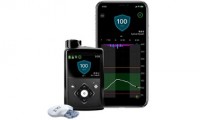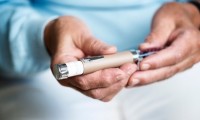-
Novo Nordisk enters new research alliance for diabetes and cardiometabolic diseases
- Source: drugdu
- 107
- September 13, 2023
-
Medtronic sued for allegedly sharing ‘treasure trove’ of diabetes patient data with Google
- Source: drugdu
- 119
- September 7, 2023
-
Low-dose aspirin linked to 15% lower risk of type 2 diabetes in older adults
- Source: drugdu
- 112
- September 4, 2023
-
UK Probes Weight Loss, Diabetes Drugs for Suicidal Ideation and Self-Harm Risk
- Source: drugdu
- 119
- July 28, 2023
-
FDA approves CellTrans’ Lantidra as first cellular therapy to treat type 1 diabetes
- Source: drugdu
- 127
- July 3, 2023
-
Lantidra wins FDA approval as first-ever type 1 diabetes cell therapy
- Source: drugdu
- 205
- July 3, 2023
-
Loneliness linked with elevated risk of cardiovascular disease in patients with diabetes
- Source: drugdu
- 154
- July 1, 2023
-
More than 1.31 billion people could have diabetes by 2050, study says
- Source: drugdu
- 115
- June 28, 2023
-
ADA says all diabetes patients should be screened for nonalcoholic fatty liver disease
- Source: drugdu
- 114
- June 27, 2023
-
Type 2 diabetes is frequently overlooked in clinical trials, analysis reveals
- Source: drugdu
- 136
- June 26, 2023
your submission has already been received.
OK
Subscribe
Please enter a valid Email address!
Submit
The most relevant industry news & insight will be sent to you every two weeks.













